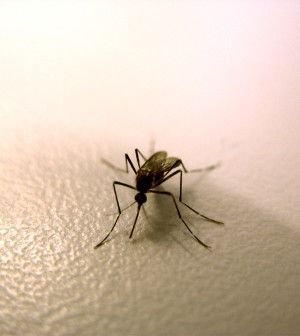- Could Your Grocery Store Meat Be Causing Recurring UTIs?
- Are You Making This Expensive Thermostat Error This Winter?
- Recognizing the Signs of Hypothyroidism
- 10 Strategies to Overcome Insomnia
- Could Artificial Sweeteners Be Aging the Brain Faster?
- Techniques for Soothing Your Nervous System
- Does the Water in Your House Smell Funny? Here’s Why
- Can a Daily Dose of Apple Cider Vinegar Actually Aid Weight Loss?
- 6 Health Beverages That Can Actually Spike Your Blood Sugar
- Treatment Options for Social Anxiety Disorder
Anthrax Vaccine Shows Promise in Monkey Trial

A vaccine made with a component of the bacteria that causes anthrax protected monkeys from the deadly infection in a preliminary trial.
Previous research showed that this component — the anthrax capsule — played a pivotal role in providing protection, the researchers said.
In this study, the same team of scientists at the U.S. Army Medical Research Institute of Infectious Diseases (USAMRIID) tested a higher dose of the anthrax capsule vaccine in monkeys exposed to lethal inhaled levels of anthrax spores.
All the monkeys that received the vaccine survived, while the non-vaccinated monkeys died from anthrax, according to the study published online June 27 in the journal Vaccine.
The results suggest that anthrax capsule is a highly effective vaccine ingredient and should be considered for use in future anthrax vaccines, the researchers said. Current anthrax vaccines are based on a different component of anthrax toxins.
“In the 140-year history of research on anthrax there have been two previous types of vaccine, the last one licensed in 1970,” study senior author Dr. Arthur Friedlander said in a USAMRIID news release.
“This new capsule vaccine is expected to work against possible vaccine-resistant strains of anthrax and to protect individuals who may not respond optimally to protective antigen [a foreign substance that triggers an immune response] alone. In addition, it could be combined with protective antigen to create a multi-component vaccine that may enhance the efficacy of protective antigen-based vaccines,” he said.
However, it’s important to note that most animal research doesn’t produce similar results in human.
More information
The U.S. Centers for Disease Control and Prevention has more on anthrax.
Source: HealthDay
Copyright © 2026 HealthDay. All rights reserved.










